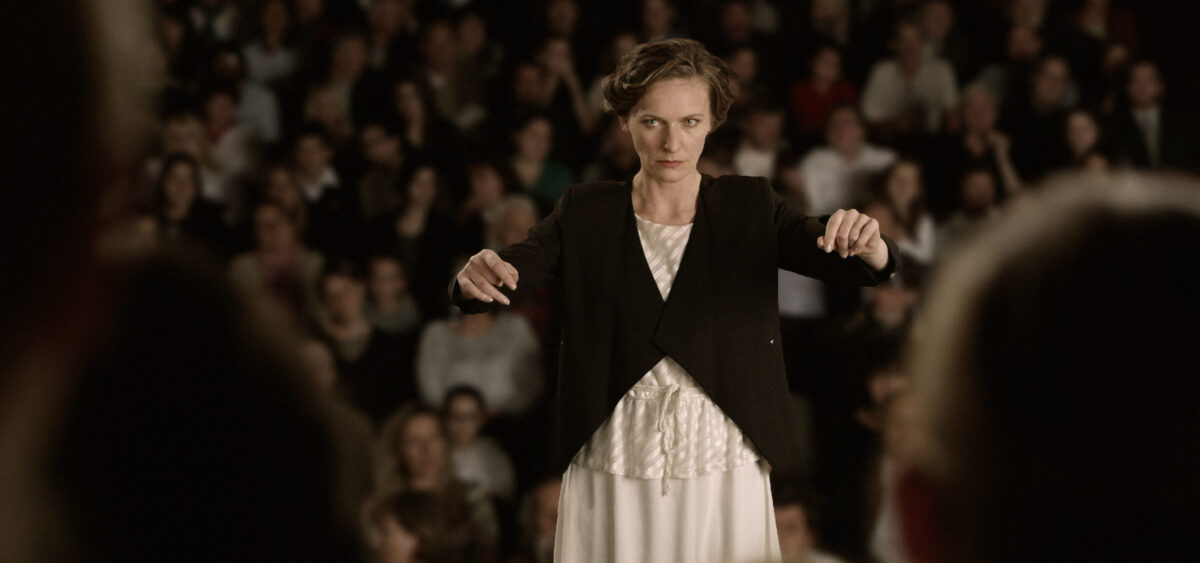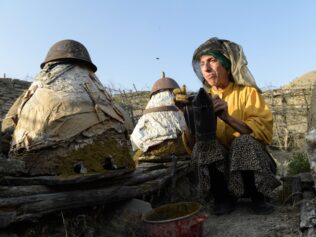
Zsofi is a well-mannered and timid young girl who joins her new school’s award-wining choir to anchor herself to her new reality. But after the first rehearsal, the teacher tells her in private that she should stay silent and mime the lyrics. The explanation? Zsofi deserves to be a part of the choir’s success story, yet is not good enough to sing in it. The girl is heartbroken, but finds an unexpected ally in Liza, one of the most popular girls in school. This is Sing, Kristof Deák’s Academy Award-winning short film that speaks volumes about the world we live in today. Running only 25 minutes long and available to view for free on YouTube, it should be a mandatory viewing for parents and teachers alike.
Dariusz Kuźma: Sing is a powerful reminder of the ever-increasing necessity to educate people, both young and old, on how to prevent – or simply become more immune to – cases of social injustice. It is such an emotionally intense story that it seems like it was somehow personal. Was it?
Kristof Deák: Kind of. It started as a personal story that was recounted to me by my flatmate in London. She grew up in Sweden and lived through the situation you see in the film. Basically, the only thing I added was the part in which the kids stand up creatively against the teacher. I did that to have a narrative closure, and because, artistically, I believe it’s most effective to talk about such things when you invite the viewers to experience a range of emotions. I made Sing to ignite a discussion – but the ubiquity and universality of children encountering oppression in small ways still surprised me. They are innocently trying to assimilate the rules of the society they live in, and to an extent they learn the lies we all have to accept to live with each other and form a society. These are pivotal moments to most kids, and I think there should be a bigger discussion about this.
Is that what makes you tick as a film-maker?
I consider myself very sensitive to any kind of injustice and I try to address it through my films. My subsequent short film, Best Game Ever, is also a story about injustice that happens because of how the world is made up, and how the shortcomings of rapid technological advancement (without the necessary social evolution) can affect both individuals and societies. I am currently working on my feature debut, which will deal with the so-called ‘grandparent scam’, a specific type of fraud that targets older people. You know, your grandma or grandpa gets a call late at night, they’re told that you were in an accident, and it’s a matter of life and death that they send a lot of money, either to cover it up, pay the damage, or something else. I think the whole concept started in Eastern Europe; I’m sure it’s quite prevalent in Poland as well. I hope it will spark a discussion similar to the one in Sing, because the problem is real.
This one seems personal, too.
The best stories are the personal ones, and you’re right, this scam actually happened to my grandpa. At the time I felt furious and helpless. In the eyes of the law, it was a petty crime. Just a scam, no-one was hurt, but at the same time it encapsulated so well how we as a society treat the elderly. Oftentimes older people feel useless, or they suffer from the cynical attitude of all their relatives who are only after their inheritance money. Anyway, this whole situation had a strong emotional impact on me. I tried to work out how to get revenge on the scammers, and I ended up turning it into a screenplay. The main character is a ‘nice guy’ (not unlike myself) who decides to go against his upbringing and seek vigilante justice. Obviously, his life changes for the worse, and he makes many questionable choices in the process.
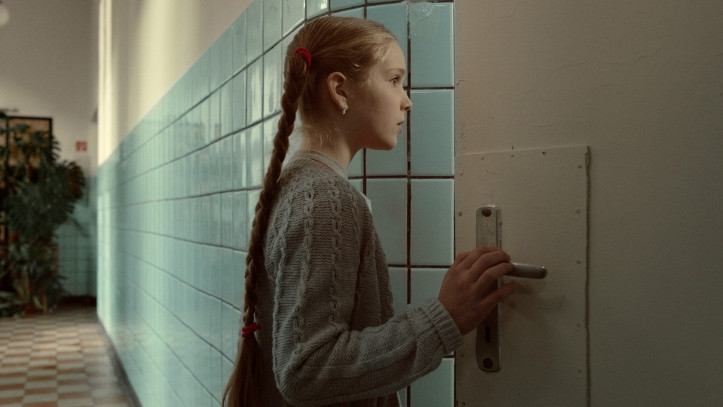
The exact opposite to Sing, where the girls stand up to the oppressor and are the moral winners.
I was really surprised how many people came to me after the screenings all over the world and said: “This is what happened to me!” Even if they weren’t in a choir, they could empathize with the situation and this particular moment of a child’s life when you learn that the ideals of society you live in are shallow. Underneath, there are almost always double standards and many forms of injustice. I think Sing worked so well because it evokes that feeling of helplessness, yet gives a kind of idealistic and uplifting solution to it. Which is probably not what would happen in real life, but it didn’t have to be exactly like that. It resonated with people because it hit some nerve they had forgotten about. It also brought a sense of coming together to solve problems in creative ways.
Sing resonated with me on numerous levels. Probably the most important issue that the film raises is that there’s always one person who needs to stand up first and have the courage to think differently, risking mocking and negativity. Only then might others join in.
This is why we decided that the popular girl in the class should be the one standing up – because she can afford to lose face. It’s the responsibility of the strong ones to stand up for the weak. Often they do, but many times they don’t. The film is Hungarian to an extent – it all happens in 1990s Hungary and revolves around a Hungarian school – but it was always meant to be a universal experience. Wherever you are in the world, you’ll probably have two or three truly good teachers in your life. If you’re lucky. The rest will just be average. And the average ones are fine, the system can function well with just-OK teachers. But if someone misinterprets the values the system promotes, like the teacher in Sing, he or she can corrupt it. The truth is, you’re very likely to encounter at least one teacher in your life who’s basically a psychopath, with no empathy, only pushing his or her agenda. This is something that happens to most of us, and as individuals we don’t really have any tools to deal with it. But if we recognize it and band together, if we turn our empathy towards others, then we will find a solution. Big words, I know, but they reflect the intention of Sing.
The film’s teacher, Miss Erika, is quite a fascinating character, though. She is an outright antagonist and at the same time a flawed human being who is certain that she is right. Actually, she reminded me of Nurse Ratched from Miloš Forman’s One Flew Over the Cuckoo’s Nest.
I’m glad you made that connection! When we pitched the feature version of Sing in Hollywood, that’s exactly how we described the teacher. It was very important to me that the antagonist had some sort of truth to her words. There’s a brief speech she delivers in the film where she basically explains to the kids how the world works, that it would be unjust to ask children who don’t have the perfect voice to be excluded from the treats the choir gets. And she has a point! About 20-30% of the viewers from the screenings I’ve attended said they agreed with her and understood the place that she was coming from. This is how a lot of evil things happen in this world – oftentimes bad people are right, or are at least they make sense on a logical level. But that’s the thing about logic and sense, it almost never tells you what’s right and wrong.
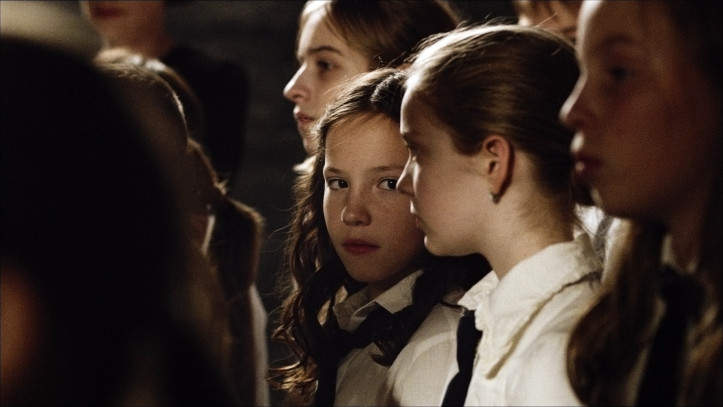
Although you may have not planned the film to be that way, Sing is a great metaphor for what is currently happening in the world, from Black Lives Matter to the hundreds of local movements and the protests of millions of people who have been silenced for most of their lives.
I’m quite proud that Sing provokes such connections. There were already many things happening in Hungary when we finished the film. One week before we screened Sing publicly on TV, there was a huge teachers’ protest before the Parliament in Budapest. They didn’t know about the film, but they came up with a beautiful gesture: they had a minute of silence to show solidarity. If you think about it, that’s a wonderful way to show solidarity. Because when 10,000 people stay silent and don’t make any sound, it takes only one person to break the silence – so total silence means total unity, in the most peaceful way possible. That was a real manifestation of power and a wonderful, very gentle way of showing how together we are strong. So, yes, Sing can be a metaphor for that, but it was just a matter of being true to the spirit of change that we all started to feel. We were incredibly lucky that we made this film just at the right moment.
This is definitely something the world needs more of – being gentle and understanding instead of being loud and negative. Although the second option often brings quicker results.
No-one can deny that, but I think it’s also important to consider that many times it’s the 20% that makes 80% of the noise. It can be effective, sure, but one must not forget about the other quiet 80% – they just want to live a normal life with dignity, fairness and respect, and protest peacefully. I count myself among them, and I think we will get our way in the end.
Sing clearly shows that such attitudes, reactions, worldviews form in early years, including the time you spend in school. What is really frustrating for me, also as a parent, is this capitalist culture of competition that is being taught to children on a daily basis.
This culture of competition has always been there, but it’s certainly worsened over the years. A lot of parents are pressured into feeling guilty if they don’t take part in it. It’s a similar thing to how, in advertising, millions are spent on evoking in us desires that don’t exist. Without these very expensive adverts you wouldn’t know that you need a big car or this brilliant washing powder to feel like a proper person. All of these false desires are somehow implanted into us in the same way that the expectations of how to be a good parent are implanted via social media. Now, if you hear that other parents’ children are going to a trilingual kindergarten, and yours will only be in a bilingual one, you are expected to feel sorry for yourself and your kid. Because, by the age of six he or she will be fluent only in Polish and English, not Spanish. It’s all bullshit. These are not real human values. Society is gravitating towards things that are easily measurable and convertible to capitalist values. I don’t mean to sound like I have a solution, but certainly capitalist values aren’t (and shouldn’t be!) that important in the life of a four-year-old.
Proper education as a means of bringing up generations who value something more than pure competitiveness. Not a new idea, but still it somehow seems like a revolutionary one.
Like Yuval Noah Harari says, we form communities by sharing our belief in the stories we tell each other. Right now, the story seems to be this grand capitalist myth that growth is great and competition brings out the best in everyone, thus it’s inherently good. Because of that, whoever is successful, which is mostly measured in money, will get everything good in life. Fortunately, these values are now starting to break apart and people are starting to realize that there are different philosophies to live by. We kind of fooled ourselves into thinking that there aren’t any other values.
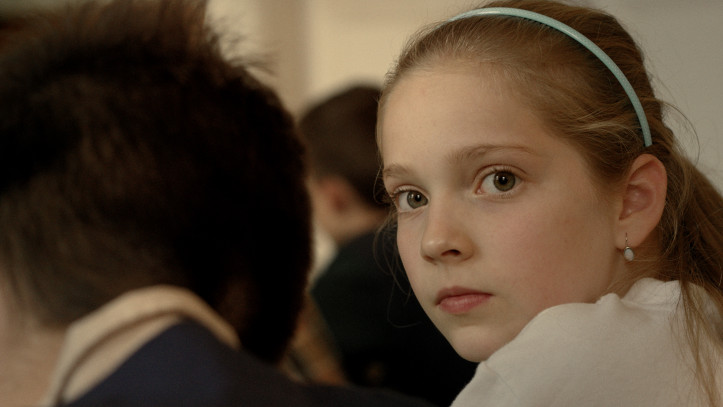
The truth is, over the last 10,000 years, humanity has always lived under the spell of some sort of common myth, shared by all of us. These myths kept getting strong and then losing their grip with time, while new ones emerged and took their place. I think we might be at an inflection point where we are about to lose faith in one myth and bring another into existence. A lot of people are trying to control this new common myth, but there is a spiritual renewal happening because we see how our planet’s climate is changing and how a simple virus can cause huge disruptions to the whole of humanity. I hope that this will result in a sort of humility that will produce a global shift of priorities, and that our children will therefore have very different values. Only time will tell.
You can watch the film here.
Parts of this interview have been edited and condensed for clarity and brevity.
Kristof Deák:
Kristof Deák started his career in editing before studying directing at Westminster Film School. He works in London and Budapest, where he directs short films and television drama. He is currently developing his first feature film.


